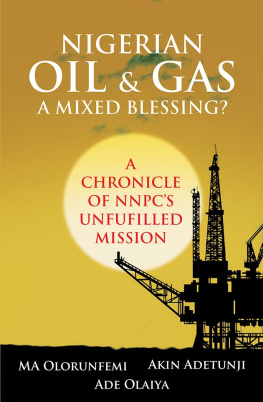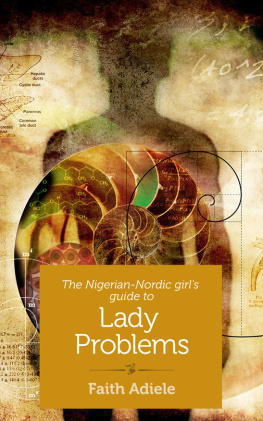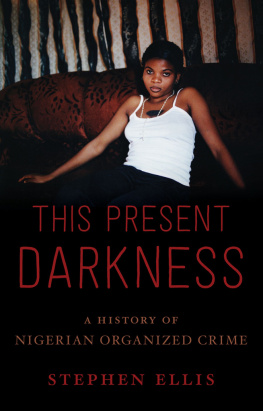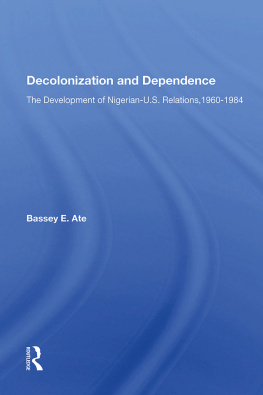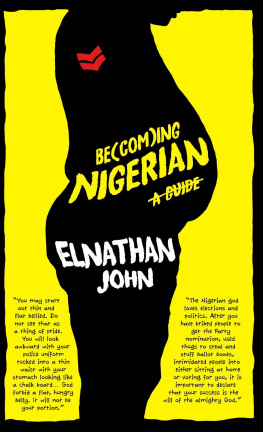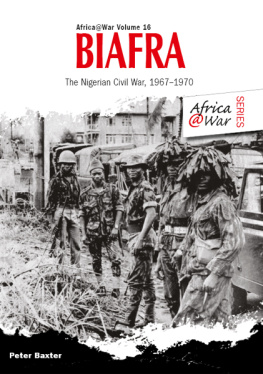Nation on Board
NEW AFRICAN HISTORIES
SERIES EDITORS: JEAN ALLMAN, ALLEN ISAACMAN, AND DEREK R. PETERSON
Books in this series are published with support from the Ohio University Center for International Studies.
David William Cohen and E. S. Atieno Odhiambo, The Risks of Knowledge: Investigations into the Death of the Hon. Minister John Robert Ouko in Kenya, 1990
Belinda Bozzoli, Theatres of Struggle and the End of Apartheid
Gary Kynoch, We Are Fighting the World: A History of the Marashea Gangs in South Africa, 19471999
Stephanie Newell, The Forgers Tale: The Search for Odeziaku
Jacob A. Tropp, Natures of Colonial Change: Environmental Relations in the Making of the Transkei
Jan Bender Shetler, Imagining Serengeti: A History of Landscape Memory in Tanzania from Earliest Times to the Present
Cheikh Anta Babou, Fighting the Greater Jihad: Amadu Bamba and the Founding of the Muridiyya in Senegal, 18531913
Marc Epprecht, Heterosexual Africa? The History of an Idea from the Age of Exploration to the Age of AIDS
Marissa J. Moorman, Intonations: A Social History of Music and Nation in Luanda, Angola, from 1945 to Recent Times
Karen E. Flint, Healing Traditions: African Medicine, Cultural Exchange, and Competition in South Africa, 18201948
Derek R. Peterson and Giacomo Macola, editors, Recasting the Past: History Writing and Political Work in Modern Africa
Moses E. Ochonu, Colonial Meltdown: Northern Nigeria in the Great Depression
Emily S. Burrill, Richard L. Roberts, and Elizabeth Thornberry, editors, Domestic Violence and the Law in Colonial and Postcolonial Africa
Daniel R. Magaziner, The Law and the Prophets: Black Consciousness in South Africa, 19681977
Emily Lynn Osborn, Our New Husbands Are Here: Households, Gender, and Politics in a West African State from the Slave Trade to Colonial Rule
Robert Trent Vinson, The Americans Are Coming! Dreams of African American Liberation in Segregationist South Africa
James R. Brennan, Taifa: Making Nation and Race in Urban Tanzania
Benjamin N. Lawrance and Richard L. Roberts, editors, Trafficking in Slaverys Wake: Law and the Experience of Women and Children
David M. Gordon, Invisible Agents: Spirits in a Central African History
Allen F. Isaacman and Barbara S. Isaacman, Dams, Displacement, and the Delusion of Development: Cahora Bassa and Its Legacies in Mozambique, 19652007
Stephanie Newell, The Power to Name: A History of Anonymity in Colonial West Africa
Gibril R. Cole, The Krio of West Africa: Islam, Culture, Creolization, and Colonialism in the Nineteenth Century
Matthew M. Heaton, Black Skin, White Coats: Nigerian Psychiatrists, Decolonization, and the Globalization of Psychiatry
Meredith Terretta, Nation of Outlaws, State of Violence: Nationalism, Grassfields Tradition, and State Building in Cameroon
Paolo Israel, In Step with the Times: Mapiko Masquerades of Mozambique
Michelle R. Moyd, Violent Intermediaries: African Soldiers, Conquest, and Everyday Colonialism in German East Africa
Abosede A. George, Making Modern Girls: A History of Girlhood, Labor, and Social Development in Colonial Lagos
Alicia C. Decker, In Idi Amins Shadow: Women, Gender, and Militarism in Uganda
Rachel Jean-Baptiste, Conjugal Rights: Marriage, Sexuality, and Urban Life in Colonial Libreville, Gabon
Shobana Shankar, Who Shall Enter Paradise? Christian Origins in Muslim Northern Nigeria, ca. 18901975
Emily S. Burrill, States of Marriage: Gender, Justice, and Rights in Colonial Mali
Todd Cleveland, Diamonds in the Rough: Corporate Paternalism and African Professionalism on the Mines of Colonial Angola, 19171975
Carina E. Ray, Crossing the Color Line: Race, Sex, and the Contested Politics of Colonialism in Ghana Sarah Van Beurden, Authentically African: Arts and the Transnational Politics of Congolese Culture Lynn Schler, Nation on Board: Becoming Nigerian at Sea
Nation on Board
Becoming Nigerian at Sea
Lynn Schler
OHIO UNIVERSITY PRESS
ATHENS
Ohio University Press, Athens, Ohio 45701
ohioswallow.com
2016 by Ohio University Press
All rights reserved
To obtain permission to quote, reprint, or otherwise reproduce or distribute material from Ohio University Press publications, please contact our rights and permissions department at (740) 593-1154 or (740) 593-4536 (fax).
Printed in the United States of America
Ohio University Press books are printed on acid-free paper 
26 25 24 23 22 21 20 19 18 17 16 5 4 3 2 1
Library of Congress Cataloging-in-Publication Data
Names: Schler, Lynn, author.
Title: Nation on board : becoming Nigerian at sea / Lynn Schler.
Other titles: New African histories series.
Description: Athens : Ohio University Press, 2016. | Series: New African histories | Includes bibliographical references and index.
Identifiers: LCCN 2015044414| ISBN 9780821422175 (hc : alk. paper) | ISBN 9780821422182 (pb : alk. paper) | ISBN 9780821445594 (pdf)
Subjects: LCSH: Merchant marineNigeriaHistory. | Merchant marinersNigeriaSocial conditions. | Merchant marinersLegal status, laws, etc.Nigeria. | Nigerian National Shipping LineHistory.
Classification: LCC HD8039.S42 N557 2016 | DDC 387.509669dc23
LC record available at http://lccn.loc.gov/2015044414
ISBN 9780821445594 (e-book)
With love, to George, Amos, Ellie, and Mika
Contents
Illustrations
Acknowledgments
Many research projects spring from personal experiences and connections to a certain topic, while others are born out of fascination with something extremely foreign or misunderstood. This project unquestionably falls into the second category. My curiosity about the lives and experiences of Nigerian seamen is undeniably linked to my own fear of the sea, and my sheer fascination with those whose livelihoods required them to spend days, months, and years crossing the oceans. As Nigerian seamen were recruited as an underpaid and undervalued labor force on both colonial and postcolonial ships, the hardships and challenges they faced were particularly pronounced. This research was thus driven by reverence for the struggles and adventures these seamen experienced in the face of endless difficulties both onboard ships and ashore. Because the project began with my lack of familiarity with this world, it required a full education into the many facets of African seafaring in the colonial and postcolonial eras. I slowly entered into a world of knowledge concerning life on board ships, including ship hierarchies, work regimens, and tasks, as well as deck-based social relations and cultural life. I also learned about the political economy of international shipping in general, and the politics of shipping in postcolonial nations in particular. To close the gaps of knowledge, I had to rely on countless sources of information and support. The final product is based on material gathered from a wide range of archives, interviews, and the published research of others. Thus, I am deeply indebted to a long list of people and institutions that made this book a possibility.
First and foremost, I am indebted to the former Nigerian seamen, officers, seamens wives, and former NNSL managers who generously gave me their time, opened up their homes and their offices to me, responded to a wide array of questions, and tolerated my lack of knowledge regarding the material lives of seafarers in the international shipping industry. More than seventy men and women shared their stories, some of which were uplifting, others that were testimonies of abuses suffered and disillusionment. Every interview opened up a world onto itself, and I never could have undertaken this project without the detailed and insightful testimonies that emerged in each meeting. In particular, I am grateful to Adeola Lawal, Capt. Alao Tajudeen, Ari Festus, Ben Achilefu, Evelyn Miekumo, Lawrence Miekumo, Muritala Olayinka alli-Balogun, Pa Agbaosi, Rita Anomorisa, and Jackson Anomorisa. Sadly, some of the most notable informants have passed away since we last met: Joseph Kehinde Adigun, Anthony Davies Eros, Capt. Cosmos Niagwan, and Reuben Lazarus. Although the final product will appear long after the last of the interviews was conducted, it is my hope that all those interviewed will find their stories accurately portrayed in the pages that follow.
Next page

